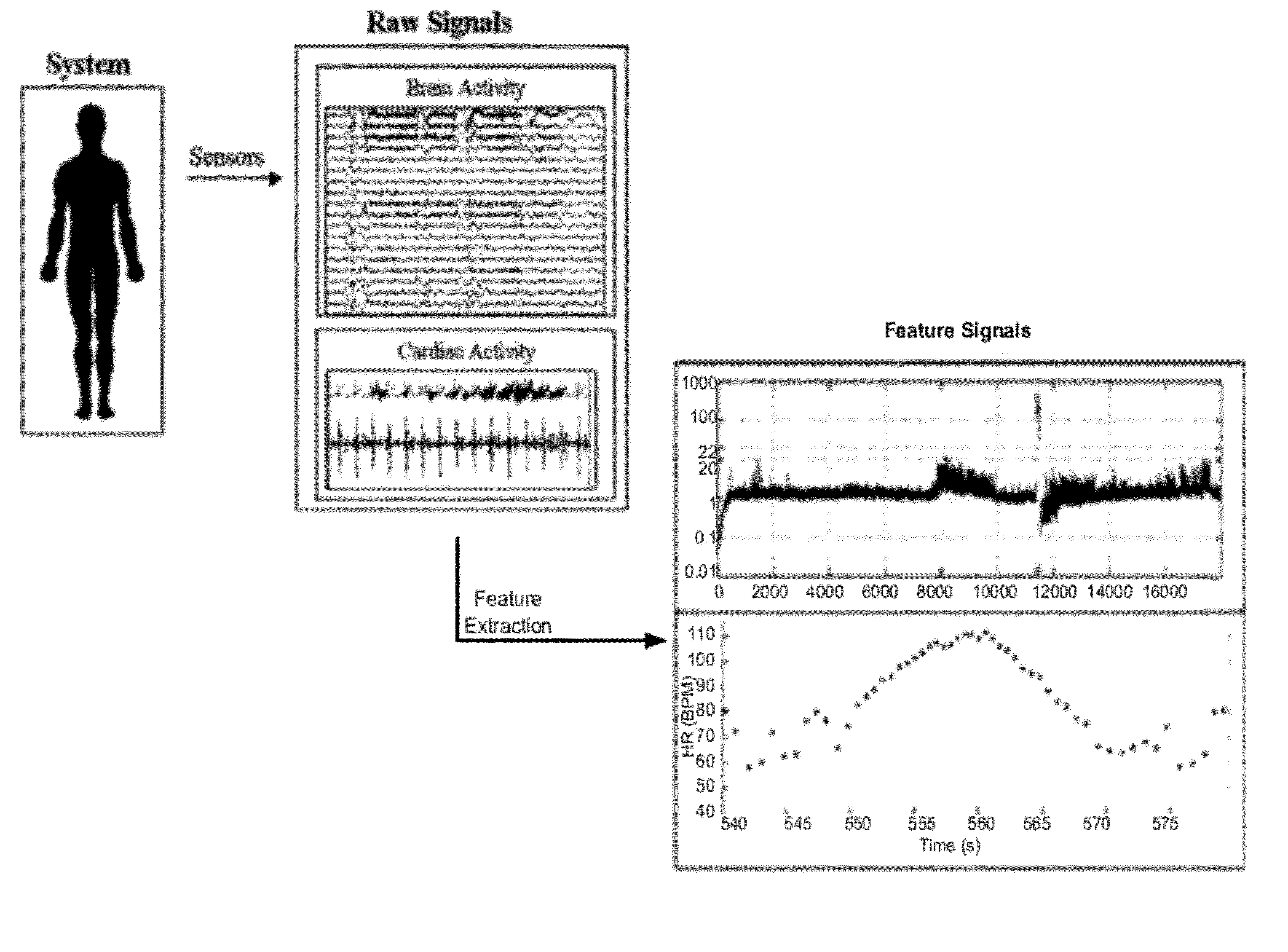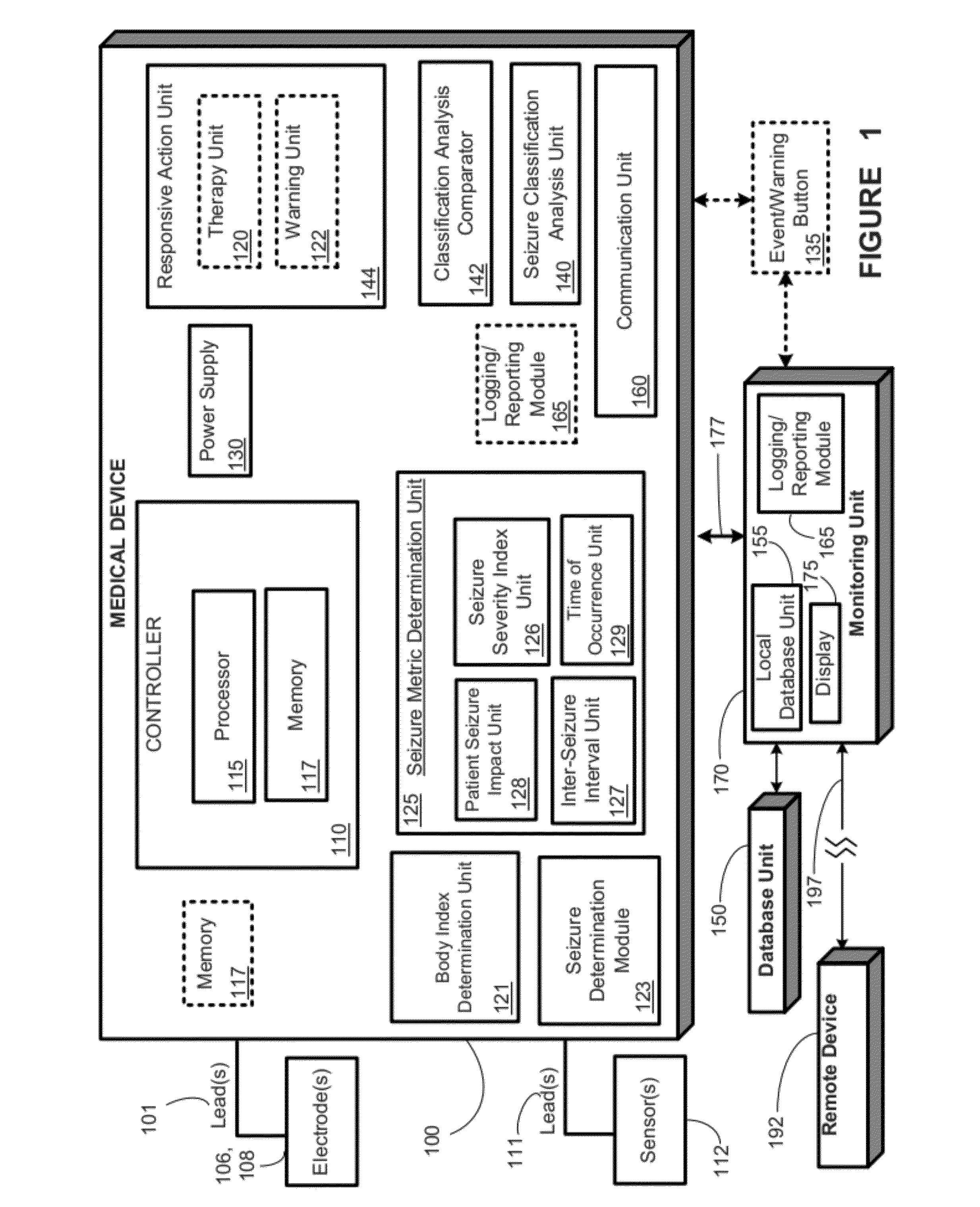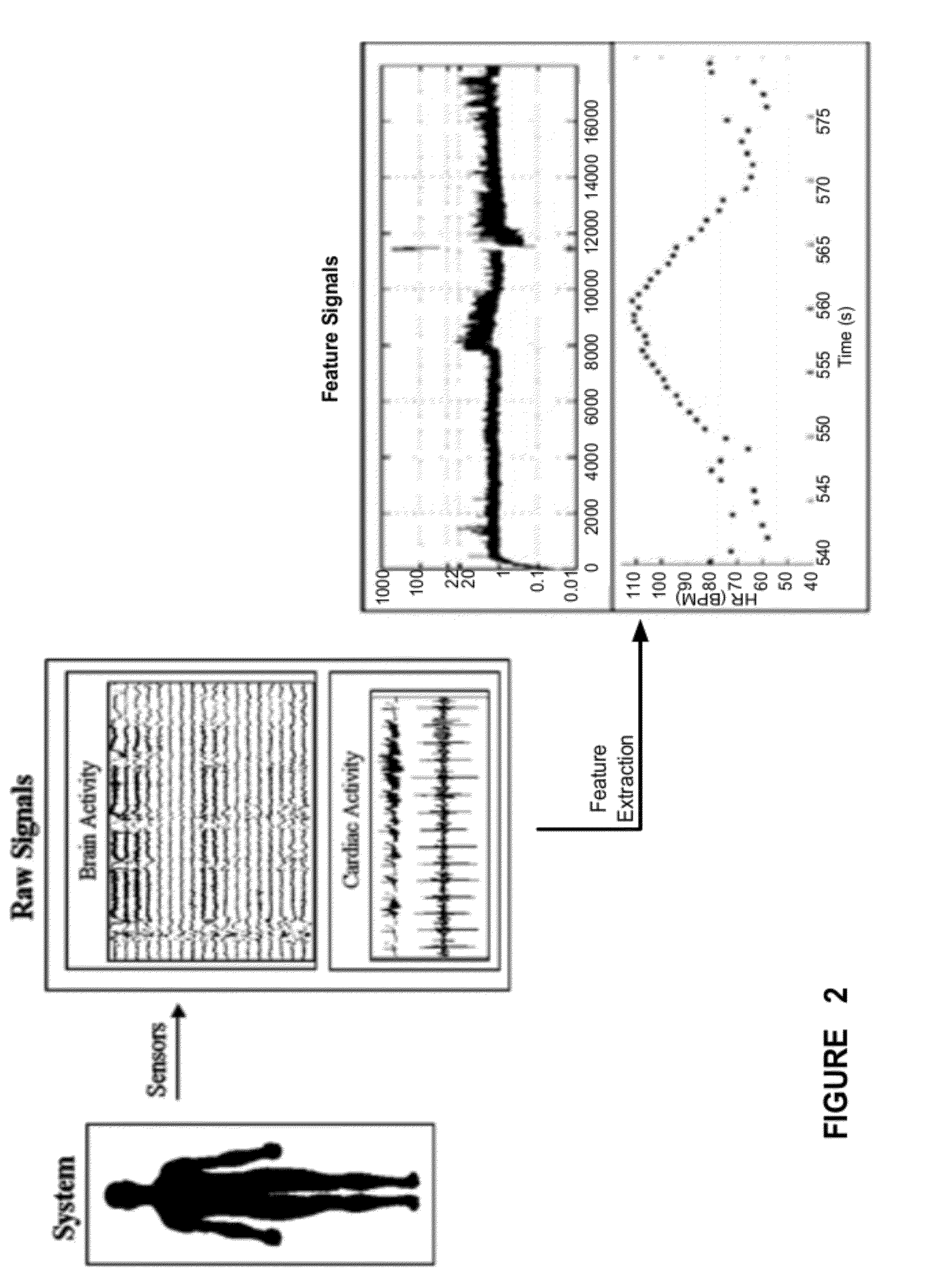Detecting, Assessing and Managing Epilepsy Using a Multi-Variate, Metric-Based Classification Analysis
a multi-variate, metric-based classification technology, applied in the field of medical device systems, can solve the problems of increasing the risk of bodily injury and neurologic deficits, undergoing extreme, life-threatening changes, and important limitations of focus
- Summary
- Abstract
- Description
- Claims
- Application Information
AI Technical Summary
Benefits of technology
Problems solved by technology
Method used
Image
Examples
Embodiment Construction
[0009]In one embodiment, the present disclosure relates to a method for identifying changes in an epilepsy patient's disease state. The method comprises receiving at least one body data stream; determining at least one of an autonomic index, a neurologic index, a metabolic index, an endocrine index, a tissue index, or a tissue stress index, a physical fitness or body integrity index based upon the at least one body data stream; detecting a plurality of seizure events based upon the at least one determined index; determining at least one seizure metric value for each seizure event in the plurality of seizure events; performing a first classification analysis of the plurality of seizure events based on the at least one seizure metric value for each seizure event; detecting at least one additional seizure event based upon the at least one determined index; determining at least one seizure metric value for each of the at least one additional seizure events, performing a second classific...
PUM
 Login to View More
Login to View More Abstract
Description
Claims
Application Information
 Login to View More
Login to View More - R&D
- Intellectual Property
- Life Sciences
- Materials
- Tech Scout
- Unparalleled Data Quality
- Higher Quality Content
- 60% Fewer Hallucinations
Browse by: Latest US Patents, China's latest patents, Technical Efficacy Thesaurus, Application Domain, Technology Topic, Popular Technical Reports.
© 2025 PatSnap. All rights reserved.Legal|Privacy policy|Modern Slavery Act Transparency Statement|Sitemap|About US| Contact US: help@patsnap.com



